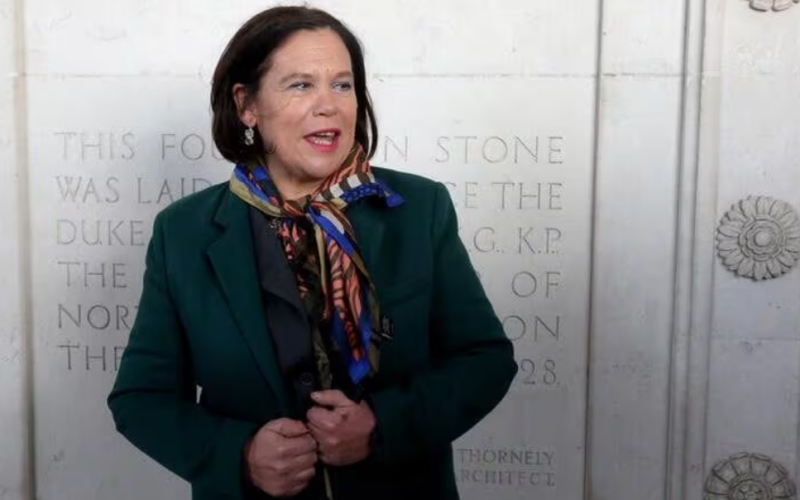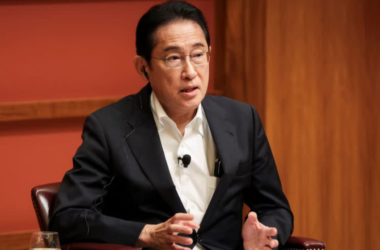Support for Sinn Fein, the prominent Irish political party with roots in the Irish Republican Army (IRA), has experienced a notable decline according to recent opinion polls in Ireland. The latest survey, conducted by the Irish Times/Ipsos B&A, revealed a six-percentage-point drop in Sinn Fein’s support to 28%. This marks the second consecutive poll to indicate a narrowing of Sinn Fein’s lead, potentially reshaping the political landscape ahead of the upcoming early elections next year.
For the past two years, Sinn Fein has maintained a substantial lead of around 10 percentage points over its main rivals, positioning itself as a formidable contender for governmental leadership. However, the recent decline in support, bringing Sinn Fein to its lowest level of backing in three years, signals a potential shift in voter sentiment.
Despite this setback, Sinn Fein still maintains a considerable lead over its closest competitors, Fianna Fail and Fine Gael, both center-right parties currently sharing power in Ireland’s coalition government. Nonetheless, the narrowing gap between Sinn Fein and its rivals suggests a more competitive electoral landscape in the run-up to the next election.
The decline in Sinn Fein’s support is not uniform across all recent polls. While the Irish Times/Ipsos B&A poll indicates a significant drop, other surveys, such as the Sunday Independent/Ireland Thinks poll, show a more modest decline of just one percentage point, with Sinn Fein maintaining a 10-point lead. The discrepancy highlights the complexity of gauging public opinion and the dynamic nature of political allegiances.
Interestingly, neither Fianna Fail nor Fine Gael saw significant gains in any of the recent polls, indicating a broader trend of stability within Ireland’s political landscape. However, smaller parties and independent candidates have made notable advances, particularly in the Jan. 28 Business Post RED C poll, where independent candidates, often more conservative-leaning, emerged as key beneficiaries.
The shifting dynamics in Sinn Fein’s support raise questions about the party’s ability to form a coalition government in the next election. A narrower lead, if sustained, could complicate Sinn Fein’s path to governance and bolster the prospects of the current three-party coalition government seeking re-election.
The issues at the forefront of public consciousness also provide insight into voter priorities. Immigration emerged as a top concern among respondents in the recent Irish Times/Ipsos B&A poll, surpassing housing, a traditionally dominant theme that Sinn Fein has capitalized on in its political platform.
As the next general election looms on the horizon, Sinn Fein’s declining support signals a potential shift in Ireland’s political landscape, underscoring the fluidity and unpredictability of electoral dynamics. While it is too early to draw definitive conclusions, the erosion of Sinn Fein’s lead suggests a more closely contested electoral contest in the months ahead.








